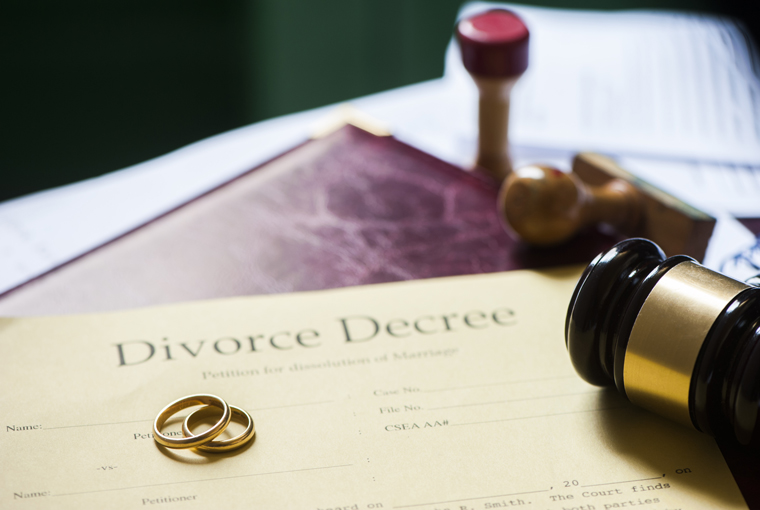Your spouse comes home one night, sit you down, looks you straight in the eye and says they are leaving. All at once, the world as you have known it is over.
This happens to more people than you know because many people do not want to admit they were blindsided by their spouse’s demand for a divorce. Often, if they were truthful, they would admit that, even after hearing the news, they did not want a divorce.
Many people cannot imagine what they will do or how they will recover. They only know they do not want life to change, and that means getting a divorce is unimaginable.
Nevertheless, sometimes the decision is out of your hands. If a spouse wants to leave, if he is determined to do so, or – as often happens – they fall in love with someone else, there is nothing to be done other than accept it. However, there are ways for you to cope, ways that help you day by day, inch by inch, start feeling better about your change in circumstances.
Here are some suggestions for helping you cope with divorce – even when you do not want one.
Grieve, grieve, and then grieve some more
No one has died, at least not literally, but something has died – your relationship with the person you thought you’d spend your life with. You must treat it like death and allow yourself time to be miserable, to wallow in feeling abandoned and depressed. It is only by feeling these things profoundly and acknowledging just how awful you feel, that you can one day notice that the pain has lessened just a little.
Do not rush it, either. There is no magic timetable by which you can measure despair. Do not say, “it has been three months. I should feel better by now.” People grieve in different ways and at different paces, and no one individual is more right than another’s.
Talk to friends and others whom you love
and who love you. You must find someone on whom you can dump all the pain and grief you’re feeling, a person who will listen and not necessarily offer advice. The last thing you need is a well-intentioned friend saying, “I know a great divorce lawyer!” the moment you tell her the news.
At first, at least, you need someone who will be there, usually with a glass of your favourite drink in hand, who says, “tell me everything.” Someone who agrees that your anger and hurt feelings are justified, that your spouse is a scoundrel for doing this. There is plenty of time later on for concrete and sensible advice. In the beginning, you need someone on your side who listens, absorbs and acknowledges how deeply hurt you feel. Soon enough, sensible advice can come when you’re ready to hear it.
Indulge in lots of self-care
If ever there was a time to spend getting pampered, this is it. You must tend to your heart, of course, but tending to your physical needs is just as important. Go to the hairdresser. Get a manicure and pedicure, or anything that makes you feel better on the outside is going to help you feel better on the inside too.
Focus on your new start
Okay, you cannot prevent your husband (or wife) from clearing out their side of the walk-in closet, but you can reorganise and redecorate to make it your own space now. Do whatever you have to do to fill the vacant area left by your spouse and make his former home office your fitness room or art studio.
Redesign rooms to accommodate your needs and tastes. This does not have to cost a fortune – with a little forethought; a room can take on a whole new purpose by merely rearranging furniture or adding a few shelves. If you have to move to a brand new location, make sure it is somewhere you want to live. Do not rush this decision just because you are grieving and do not want to be bothered – you will regret it.
Get your anger out by exercising
Even if you cannot get to the gym and do not have a separate room for exercise, there are no excuses for not moving off the couch. Pop in an old DVD or take a fitness class on YouTube and work out in the living room. Trust us; you’ll feel a whole lot better if you sweat and groan while doing a challenging fitness class than you will if you do little, but binge-watch Netflix and eat ice cream.
Remember: this is the time for self-care, not self-harm. There is nothing wrong with an evening of drinking wine and eating snacks with the friend who has been a rock through all this. However, do not indulge too much or for too long, or you are guaranteed to feel worse about yourself, and the divorce.
When you are ready, ask yourself the tough questions
No one wants to hear this, but a divorce is never one person’s fault entirely, no matter how terrible someone’s behaviour is on the surface. (Cheating, for example.)
Two people create marriage, and so is divorce. Eventually, you have to start asking yourself how you contributed to the breakdown. If necessary, spend a little money, seeing a therapist guide you through this process; their objectivity and insight can be life-changing.
Navigating a divorce is never easy, but it is particularly tricky if you did not want it and felt blindsided by your spouse’s demand for one. Now all you can do is cope, as best as you can, and with the right supports and self-examination, you will get through it.
Eventually, the pain eases, and you will find yourself not just thinking about the future, but looking forward to it. By following some of these guidelines, you may find you have started feeling better a whole lot sooner than you expected to, and that alone is something to celebrate.
Visit Qredible.co.uk to find a divorce lawyer near you.
Related article: How to cope with emotional stress during a divorce?
Do you need a Lawyer?
Find Solicitors, Lawyers and Law Firms in the UK with Qredible
Find a Lawyer near me






